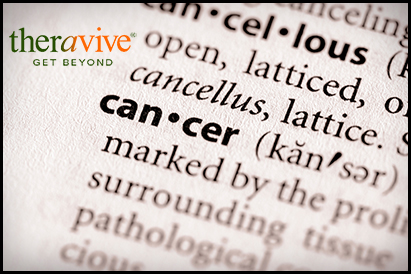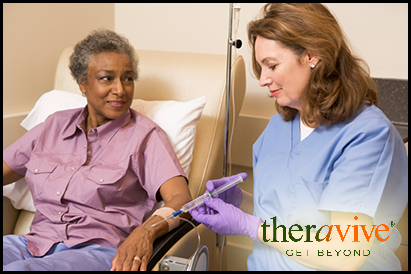 A devastating diagnosis
A devastating diagnosis
The diagnosis of stage IV lung cancer was devastating. Everyone close to him knew that the chances of survival were slim. Desperate, his wife started researching alternative treatments. Without telling him, she started him on a “cure” that she saw advertised on television. There was a chemical in apricot pits that had been “proven” to cure cancer. Certain she was doing the right thing, she put the extraction in his smoothie every day, which started making him ill. If she had done the research, she would have known that this “cure” was actually a well-known fraud and - more importantly - poison.
The diagnosis of lung cancer can be frightening. It is only normal to feel the need to find a cure that avoids the harsh realities of surgery, chemotherapy, radiation and possibly of hospice care. The diagnosis of lung cancer need not be a death sentence, though. If detected early, lung cancer is quite survivable and even advanced lung cancer can be treated in such a way that the person may survive for several years after the diagnosis. However, no magic pill has yet been discovered to cure the illness. You will have to endure the difficult treatments.
The stages of lung cancer
Lung cancer is treated according to stages. The early stages (I and II) of non-small cell lung cancer lung cancer (NSCLC) are usually treated with resection - that is, surgery - to remove the tumor. The various types of stage III and stage IV NSCLC, and both types of small cell lung cancer (SCLC), are treated with a combination of surgery (where possible), chemotherapy and radiation treatments. Chemotherapy is the use of certain drugs that kill abnormal cells in the body. Unfortunately, chemotherapy also kills healthy cells and causes a lot of unpleasant side-effects such as nausea and hair loss. In later stages of lung cancer, sometimes chemotherapy is used to reduce the size of the tumor so that it then may be removed surgically. Radiation kills the DNA of both normal and abnormal cells, but can more easily be targeted to the specific cancerous region.
By stage IV, high doses of radiation are given simply to alleviate the symptoms that lung cancer causes, such as shortness of breath and coughing. [1] [2] If the cancer has not metastasized (spread) beyond the region of the lungs, (that is, the primary region), and the patient responds well to chemotherapy, there is still a very small possibility of tumor removal. [3] Those suffering from advanced stages of lung cancer who have tried everything to set the illness back to no avail may be eligible for drug trial treatments. You can search for expanded access studies or clinical trials. Your doctor must then contact the drug companies, as not everyone will be eligible. [4]
 Be aware
Be aware
Because of the emotional nature of cancer, there are a lot of fraudsters out there who will try to make a buck off someone else’s pain and suffering. Fraud is usually characterized by “personal testimonies”, money-back guarantees, natural remedies and advanced payments. Hoxsey therapy, shark cartilage, coral calcium and amygdalin are all examples of popular proven frauds. [5] Be aware that right now there is no cure for cancer. Also, there is simply not enough information about the illness to offer definitive advice for treatment alternatives.
Pain from cancer and discomfort from treatments can be managed with medications, but this must be done with doctor supervision as many pain blockers are addictive. [6] Before you embark on your own diet and home remedies, do the research. Dietary supplements ought to be used with caution and with the collaboration of your doctor as many supplements may actually prove to be toxic or harmful. [7] Surprisingly, several studies have shown that a diet rich in beta-carotene (the chemical that makes fruits and vegetable orange) actually increases the risk of developing lung cancer, when once upon a time the opposite was thought to be true. That does not mean that you should stop eating orange fruits and vegetables, however. A diet rich in fruits and vegetable is ideal, but with a wide variety. [8]
The effects of chemotherapy and other treatments for cancer can make a person feel quite ill, causing a loss of appetite and weight. It is very important to maintain a healthy weight. If food tastes bland to you, try adding spices. If it tastes metallic, eat with plastic utensils and cook in glassware. Chew mints to rid your mouth of the metallic taste. If water tastes funny, try getting your liquids in other ways or by flavoring your water. If meat is no longer appealing, be sure to get enough protein from alternate sources such as eggs, fish or cheese. [7] If nothing whets your appetite, talk to your doctor about the legal use of medical marijuana, as it boosts appetite and aids in sleep.
If you or your loved one is fighting lung cancer, know the myths of treating the illness from the realities. Hopefully this will help everyone involved to feel better and to fight the illness with confidence.
_________________________________________________________________________________________________________________________________
[1] [Non-Small Cell Lung Cancer Treatment” http://www.lungcancer.org/find_information/publications/163-lung_cancer_101/269-non-small_cell_lung_cancer_treatment]
[2] [“Lung Cancer: Diagnosis and Management”, Lauren G. Collins, M.D., Christopher Haines M.D., Robert Perkel, M.D., and Robert E. Enck, M.D. 2007 http://www.med.wright.edu/sites/default/files/medu/Archived/2013/M2/Respiratory/Collins_etal_Lung_Cancer_AFP2007.pdf]
[3] [“Lung cancer--hopelessness in inoperability? A 10-year follow-up”, N. Schwegler. 1997. http://www.ncbi.nlm.nih.gov/pubmed/9265257]
[4] [“Compassionate use of experimental drugs possible in cancer treatment”, Sheryl M. Ness, R.N. http://www.mayoclinic.com/health/experimental-drugs-and-cancer/MY02223]
[5] [“How to Protect Yourself From Cancer Treatment Fraud” http://www.cancer.net/all-about-cancer/cancernet-feature-articles/cancer-basics/how-protect-yourself-cancer-treatment-fraud]
[6] [“Cancer pain: Relief is Possible”, http://www.mayoclinic.com/health/cancer-pain/CA00021]
[7] [ Nutrition Recommendations During and After Treatment http://www.cancer.net/all-about-cancer/risk-factors-and-prevention/diet-and-nutrition/nutrition-recommendations-during-and-after-treatment]
[8] [Importance of a-Carotene, P-Carotene, and Other Phytochemicals in the Etiology of Lung Cancer Regina G. Ziegler, Elizabeth A. Colavito, Patricia Hartge, Mary J. McAdams, Janet B. Schoenberg, Thomas J. Mason, Joseph F. Fraumeni, Jr. 1996 http://jnci.oxfordjournals.org/content/88/9/612.full.pdf]
Christie Hunter is registered clinical counselor in British Columbia and co-founder of Theravive. She is a certified management accountant. She has a masters of arts in counseling psychology from Liberty University with specialty in marriage and family and a post-graduate specialty in trauma resolution. In 2007 she started Theravive with her husband in order to help make mental health care easily attainable and nonthreatening. She has a passion for gifted children and their education. You can reach Christie at 360-350-8627 or write her at christie - at - theravive.com.